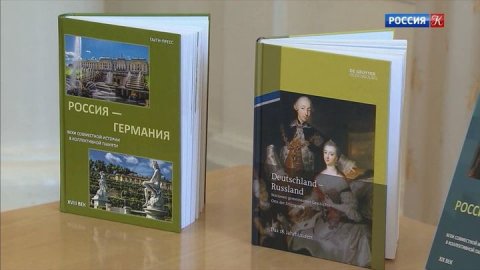Germany and Russia display Cultural Diplomacy with the Launch of Joint-Historiography Project
German and Russian Scientists presented a series of textbooks from the joint history project at the House of Receptions of the Ministry of Foreign Affairs, Moscow.
August 21st, 2019Over the past seven years, dozens of scientists from Russia and Germany have collaborated to complete these manuals, which has been received by welcoming words from Russian President Vladimir Putin and German Chancellor Angela Merkel.
For seven years dozens of scientists from Russia and Germany have been working on these manuals, and now the project has been well received with welcoming words from both Russian President Vladimir Putin and German Chancellor Angela Merkel.
Putin noted that this unique scientific work makes it possible to compare different, sometimes polar points of view. The manual will serve to strengthen confidence and understanding between the peoples of our countries. Merkel wrote that changeable relations between Germany and Russia were often key to European politics. Both countries enriched each other and often became political and military rivals.
The textbooks ¨Russia-Germany: Milestones of Joint History in the Collective Memory of the XVIII – XX centuries¨, are part of a large draft of a series of volumes that tells the story of a joint history of two countries.
In the edition about the twentieth century there are several publications on one topic due to different schools of thought - from the Russian historian and the German one - with different views on historical events. For example, in Western historiography there is an idea that we, according to the Molotov-Ribbentrop Pact, occupied part of Poland. Our historians say that there was no occupation. Though, the differences in the perception of historical events, the initiative is supposed to strengthen the cultural and diplomatic relations between the two countries.
“The project is important from all points of view, because it reflects not only bilateral relations, but also social development and culture. it gives you the opportunity to look at yourself as if from a little, to understand how others see you. This broadens the horizons and gives new scale to teaching,” said the director of the Institute of Contemporary History, the editor of the publication Horst Möller.
The work of the two countries' scientists does not end there, it is assumed that the project will continue and for each century, as an addition, a collection of documents will be published.
The creators of the series note that the project is a platform for dialogue among scientists.
References:
- - https://russische-botschaft.ru/ru/2019/07/10/v-moskve-prezentovali-uchebnye-posobi/
- - http://en.kremlin.ru/events/president/news/60977





